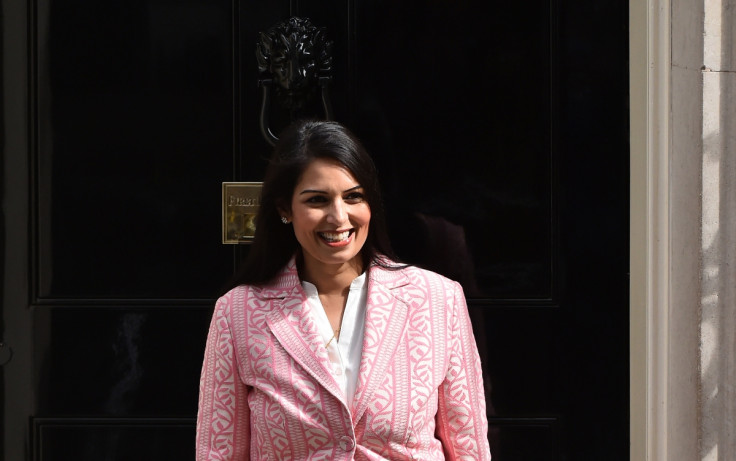Priti Patel: Who is the top Tory right-winger tipped to be the face of the Brexit campaign?

British politicians are often accused of being too male, pale and stale. Priti Patel is none of the above. The top Tory right-winger was fast-tracked into public life thanks to David Cameron's A-list scheme.
The initiative was designed to 'change the face' of the Conservative Party by making some local associations select more women, ethnic minorities and/or disabled candidates.
The programme proved to be controversial. Conservative Campaign Headquarters (CCHQ) determined who would fight the 'winnable' constituencies, while the positive-discrimination scheme turned off more traditional Tories.
The A-list was later quietly dropped by Cameron – but whatever its merits or pitfalls, the initiative enabled Patel to compete and win the Essex seat of Witham at the 2010 general election.
The former William Hague aide was later able to increase her already impressive majority to almost 20,000 votes in the May 2015 election.
Patel, the daughter of Indian Gujaratis parents who fled Uganda for London in the 1970s, was appointed employment minister just days after last year's election, a move that confirmed her status as a rising star of the Conservative Party.
But the former PR woman could risk her upward trajectory in the Tory ranks as Patel is now tipped to be the 'poster girl' of the Brexit campaign for the EU referendum.
The 43 year old is expected to tell her boss, the prime minister, in the next few days that she would "fight tooth and nail" for a break away from Brussels, according to the Mail on Sunday.
The decision would put her at odds with Cameron, who is tipped to campaign against a Brexit, and possibly, more importantly, the chancellor George Osborne, who is expected to run for the Tory leadership when Cameron signals his exit.
Priti Patel: What you need to know
- Patel's parents, who are from an Indian Gujarati background, fled the regime of Uganda dictator Idi Amin in the 1970s
- Studied at the universities of Keele and Essex
- Worked for the Eurosceptic Referendum Party, William Hague, PR firm Weber Shandwick and drinks giant Diageo
- First elected to the House of Commons in 2010 as the MP for Witham
- Patel's father, Sushil, stood as a council candidate for Ukip in 2013
- Appointed as exchequer secretary to the Treasury in 2014
- Promoted to employment minister in 2015
But Patel has never shied away from controversy. She supports reintroducing the death penalty and considers Margaret Thatcher a political hero.
The late Conservative prime minister and Patel have some things in common: the right-wingers are daughters of small businessmen (Thatcher's father was a grocer; Patel's owned a chain of newsagents) and both attended grammar schools.
However, unlike Thatcher, Patel never went to Oxbridge and instead completed her first degree at Keele University followed by a postgraduate course at the University of Essex. Her background is certainly different to Cameron (Eton, Oxford) and Osborne (St Paul's, Oxford).
And this is precisely what the Eurosceptics need – someone who can operate in and around the establishment, but is not the product of it. The Vote Leave campaign, in contrast, recently appointed Tory grandee and former chancellor Lord Nigel Lawson, aged 83, as its chairman.
Likewise, Ukip leader Nigel Farage (Dulwich College) is touring the country pushing for a Brexit. But it is hard to see either men convincing the undecided, particularly female and black and minority ethnic (BME) voters, to back a 'leave' vote come 23 June. As for LeaveEU, the campaign co-founded by Ukip donor Arron Banks, they welcome talk of Patel backing a Brexit.
But a spokesman for the Eurosceptic group argued that the 'leave' campaign does not need a leader. "It needs different messengers delivering different messages to different people. Having one leader leads to it becoming a popularity contest. We will be putting the issues front and centre of our campaign," he said.
As for Patel's own position, a source close to the employment minister told IBTimesUK that the Mail on Sunday piece is "just speculation" and she would make a judgement once the final EU renegotiation deal is tabled.
© Copyright IBTimes 2025. All rights reserved.





















